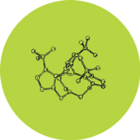In a 3:2 split decision, the High Court has today dismissed an appeal by Alphapharm, confirming that the Commissioner of Patents had the power to grant Lundbeck an extension of time to seek an extension of term for a patent covering its antidepressant LEXAPRO.
Extensions of term for pharmaceutical patents are governed by section 71 which requires that an extension of term application be filed during the term of the patent (“the first time requirement”) and within 6 months of the latest of three defined dates (“the second time requirement”). Lundbeck’s section 71 application was filed prior to the expiry of the patent’s original term but after the deadline imposed by section 71(2). Accordingly, Lundbeck sought an extension of time under section 223 in relation to the second time requirement.
Section 223 provides the Commissioner with the power to extend the time for doing a relevant act, defined in part as “an action (other than a prescribed action)”. Regulation 22.11(4)(b) stipulates that one prescribed action is:
filing, during the term of a standard patent as required by subsection 71(2) of the Act, an application under subsection 70(1) of the Act for an extension of the term of the patent
This regulation has been construed by the Patent Office as precluding an extension of time with respect to the first time requirement, i.e. if the original patent term had expired. However Alphapharm claimed that the effect of reg 22.11(4)(b) was that no extension of time could be granted in respect of an extension of term application. Alphapharm argued that the regulations prescribed actions rather than time limits and could not therefore prescribe the first time requirement but not the second.
The majority (Crennan, Bell and Gageler JJ), rejected Alphapharm’s approach to the construction of reg 22.11(4)(b), stating that:
It is not always appropriate to dissect a composite legislative expression into separate parts, giving each part a meaning which the part has when used in isolation, then combine the meanings to give that composite expression a meaning at odds with the meaning it has when construed as a whole
They concluded that the text of the regulation taken as a whole, its syntax and immediate context, supported the construction that only the first time requirement was prescribed.
The minority (Kiefel and Keane JJ) agreed with Alphapharm concluding that it was clear on the face of reg 22.11(4) that it prescribed acts, not time limits. Accordingly, the relevant act prescribed by reg 22.11(4)(b) was the filing of an extension of term application.
The decision which preserves the capacity to seek an extension of the second time requirement will no doubt come as a great relief to patentees of pharmaceutical substances.
